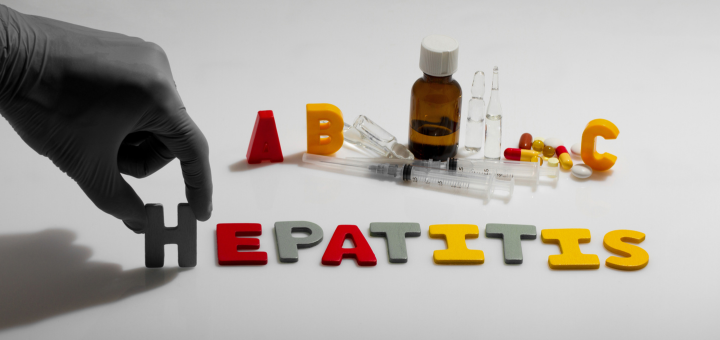The ABCs of Hepatitis: Part 1 – Hepatitis A and Sexual Health

Welcome to Hepatitis Awareness Month! Today, I am beginning a series of posts that will cover the ABCs of Hepatitis. Hepatitis A, although commonly associated with food-borne transmission, can also be transmitted through sexual activity. That is why it is important for anyone engaging in certain types of sexual activity to be aware of the potential risks associated with Hepatitis.
Hepatitis A is caused by the Hepatitis A Virus (HAV), a viral infection primarily transmitted through contaminated food and water. In the United States, outbreaks of Hepatitis A are often linked to restaurants with poor hygiene practices. Typically, a person with Hepatitis A uses the restroom, neglects proper handwashing, and subsequently handles food, leading to contamination with the virus.
You might be wondering how a virus primarily transmitted through contaminated food can also be transmitted sexually. Well, restaurants aren’t the only places that serve tossed salad. It is important to understand that engaging in oral-anal sex (also known as rimming) carries an increased risk of Hepatitis A transmission. Even with diligent rectal hygiene, the act of oral-anal sex still involves an elevated risk of fecal-oral contact, which can facilitate the transmission of the virus.
Thankfully, there is an effective means of prevention: vaccination against Hepatitis A. If you enjoy rimming, I highly recommend considering the Hepatitis A vaccine. For those who may be hesitant about vaccination, barrier methods such as Dental Dams are also a viable option. Dental dams are thin sheets of material (usually latex or polyurethane) that can be placed over the anus during oral-anal sex, or over the vulva during cunnilingus. Although they may be somewhat challenging to find, you can also create a dental dam by cutting a flavored condom lengthwise and opening it into a sheet.
Practicing good general hygiene is also essential in minimizing the risk of Hepatitis A transmission. Thoroughly washing hands after engaging in any form of anal play can help reduce the chances of infection.
In the realm of sexual health, it is crucial to destigmatize discussions about our sexual practices, particularly when speaking with healthcare providers. If your doctor is unaware of your engagement in oral-anal sex, they may not think to discuss Hepatitis A with you. It is important for all of us to advocate for open and honest dialogues with our medical providers regarding sexual health.
By understanding the connection between Hepatitis A and oral-anal sex, we can take proactive steps to protect ourselves and our communities. Through education, practicing good hygiene, using barrier methods, getting vaccinated, and fostering open discussions, we can work towards significantly reducing the transmission of Hepatitis A. Let’s join forces during Hepatitis Awareness Month to raise awareness and ensure that everyone has the knowledge necessary to make informed decisions regarding their sexual health.
References:
Centers for Disease Control and Prevention. (2021). Hepatitis A Questions and Answers for the Public. https://www.cdc.gov/hepatitis/hav/afaq.htm
World Health Organization. (2019). Hepatitis A. Retrieved from https://www.who.int/news-room/fact-sheets/detail/hepatitis-a
Gay and Lesbian Medical Association (GLMA). (n.d.). Hepatitis A: What Gay Men Need to Know. Retrieved from https://www.glma.org/hepatitis-a


